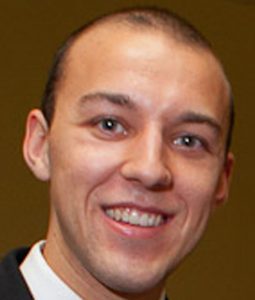The following piece was written by our Fellow at the University of Massachusetts, Brett Hausler. It was originally published on April 22nd in The Daily Collegian, and was republished in The Algemeiner on April 30th, 2014.

One of the most misunderstood facts about Israel is that it fosters diversity and works diligently to develop respectful relationships with all minorities within the country. That promise begins in the Declaration of the Establishment of the State of Israel, which was approved on May 14, 1948 by the Jewish People’s Council, several months after the United Nations General Assembly passed a resolution calling for the establishment of a Jewish state:
“THE STATE OF ISRAEL […] will ensure complete equality of social and political rights to all its inhabitants irrespective of religion, race or sex; it will guarantee freedom of religion, conscience, language, education and culture; it will safeguard the Holy Places of all religions; and it will be faithful to the principles of the Charter of the United Nations.”
Roughly 24 percent of Israel’s population – 1.8 million people – is made up of non-Jewish citizens, including Muslim Arabs, Bedouin Arabs, Christian Arabs, the Druze, the Circassians and many other identities. According to the Israel Ministry of Foreign Affairs, Israel exists as a “mosaic made up of different population groups coexisting in the framework of a democratic state.”
Similar statements and declarations cannot be found elsewhere in the Middle East, such as in the Gaza Strip, a land governed by Hamas, which claims, “Israel will exist and will continue to exist until Islam will obliterate it, just as it obliterated others before it.”
Israel has struggled since its independence in 1948 for overall justice and peace with its neighbors and shows its solidarity by accepting minorities as Israeli citizens with the full rights granted to all citizens. Israel has also established Arabic as an official language; it can be seen on all street signs, official forms and as subtitles on many television shows. Arabs also represent 40 percent of all pharmacists in Israel and are quite represented in the medical field.
The actual history of these populations prove interesting considering Israel’s stigma by some as a supposed “apartheid state.” Israel is nestled into the Middle East and serves as a safe haven for many minorities that continue to be oppressed by other countries. Israel is not the perfect country, but what country is?
One example of the integration available in the country is the Druze community, of which 100,000 members call Israel their home. Since Israel’s acceptance of this minority in 1957, they have attained high-level positions in the Israeli political, public and military departments and serve in the Israel Defense Forces: Fares Hamud Falah served as the first Druze judge in Israel, Kamal Mansour was the Arab Affairs advisor to the President of Israel and Salah Tarif became Israel’s first non-Jewish government minister when appointed by Ariel Sharon in 2001.
I had the pleasure of visiting a Druze community in 2008 and I was moved by their appreciation for Israel and their love for protecting the Jewish State. Although Israel is seen as just a home for the Jewish people, it is also a place of comfort for the Druze. These facts should be recognized and learned in order to get a more appropriate understanding of the cultures, religions, ideologies and future of Israel.
If you would like to learn more about minorities within the State of Israel, please join the Committee for Accuracy in Middle East Reporting in America, UMass Hillel and the Student Alliance for Israel on April 28 at 7 p.m. as we welcome to campus Ishmael Khaldi, Israel’s first Bedouin Diplomat.
